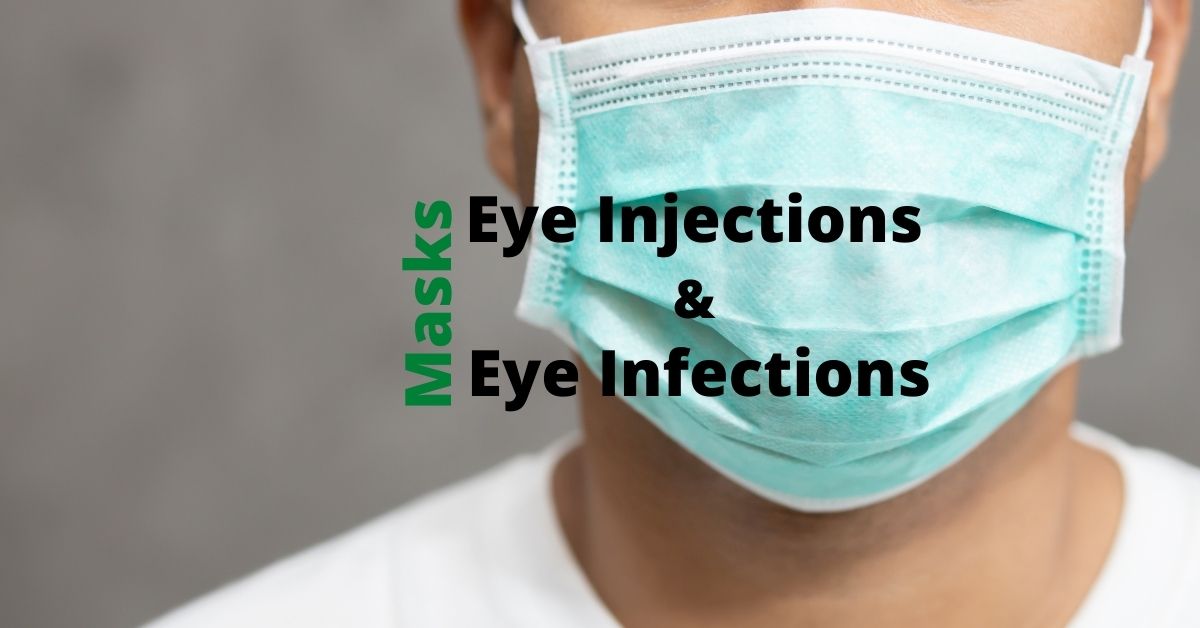Wearing a face mask is important for patients from the moment they walk into a clinic to protect themselves and others from SARS-CoV-2 infection. But additional safety measures should be used when the patient is wearing a face mask and receiving intravitreal injections to prevent contamination that could occur when exhaled breath is blown toward their eyes.
A study to investigate the air that escapes from the top of face masks used a thermal camera and found that air jets originating from the top edges of face masks and radiating toward the eye were detected in 81% of cases.
3 Face Masks
Three face masks were tested. A regular face mask with four tying strips, one with elastic ear loops, and the 220 N95 tuberculosis particulate face mask.
Exhaled breath that is normally blown forward is blocked by face masks and that air is redirected toward the eye. People who wear glasses and face masks are aware of this issue. It causes their glasses to fog up.
Anti-VEGF injections have a very low risk of endophthalmitis. Several large studies have estimated the risk at approximately 0.05% or 5 in 10,000 for any individual patient receiving monthly injections. Having face masks blowing air into the eye could increase that risk slightly and for that reason extra precautions are recommended.
Study Recommendations
The additional precaution can be done in one of two ways—a surgical drape can be used to isolate the eye or medical adhesive tape can be applied on the upper border of the face mask to block air passage. The study also recommends using an eyelid speculum to keep the eye open and prevent the eyelid from coming into contact with the needle.
The study’s author, Amir Hadayer, MD, says, “Protocols for preparing patients for intravitreal injections vary and not all specialists use draping and a speculum in normal times, but under the current circumstances, these extra precautions are recommended.”
What is Endophthalmitis?
Endophthalmitis is an infection that causes severe inflammation of the tissues inside the eye. The infection is typically caused by bacteria for fungi.
Symptoms of Endophthalmitis
- Decreased vision
- Pain
- Redness or swelling of the eye
These symptoms don’t always mean you have endophthalmitis, but if you experience one or more of these symptoms, contact your ophthalmologist.
If you would like to schedule an appointment, please call us (877) 245.2020.
